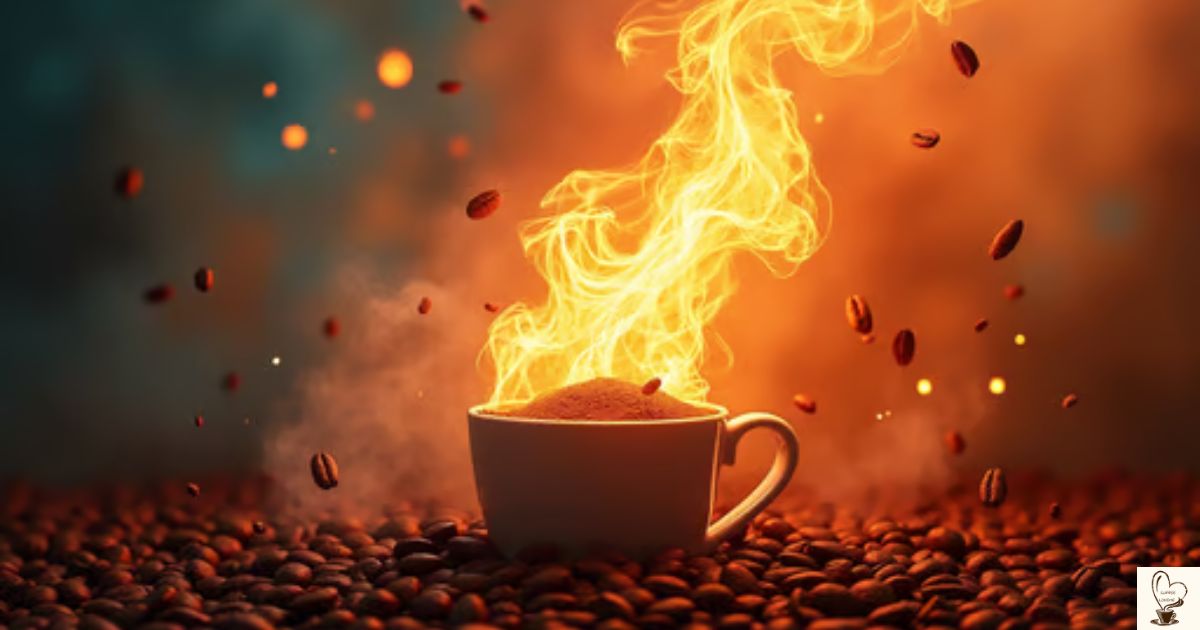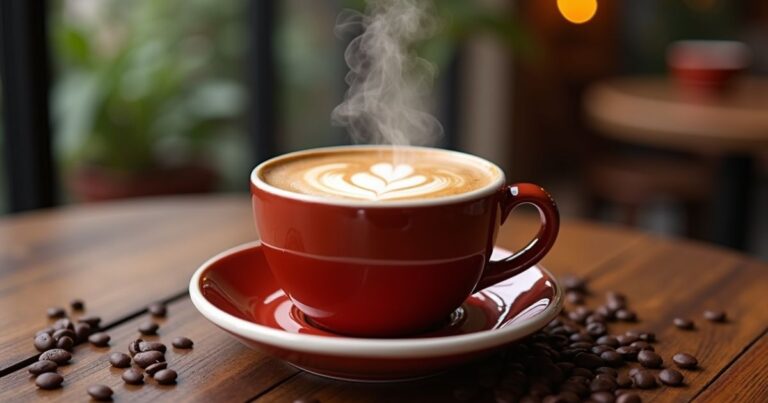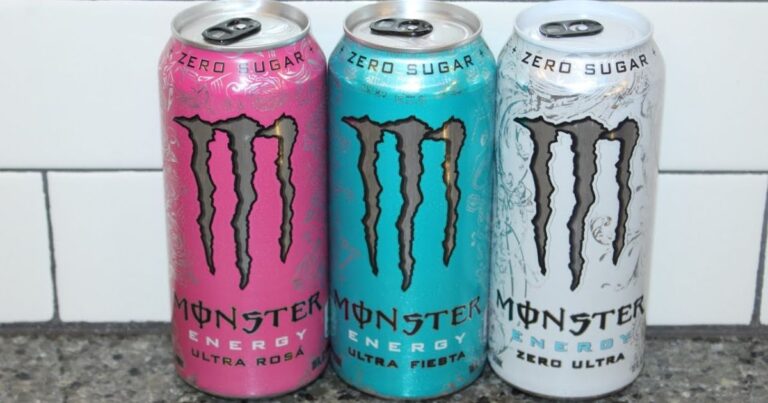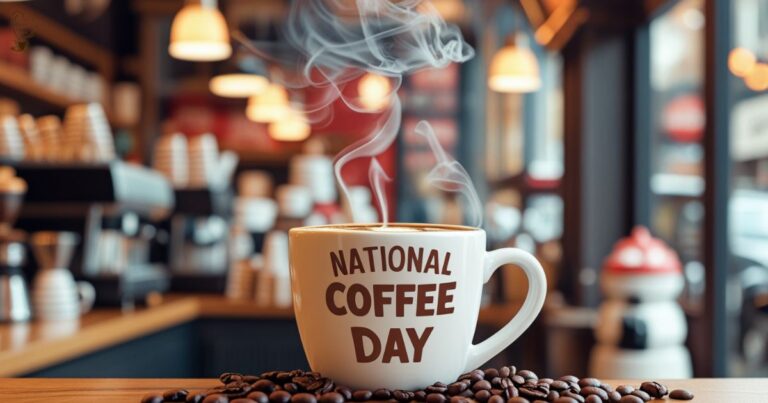How Long Does it Take for Caffeine to Kick In?A Quick Guide
For many people, coffee is a must-have to start their day. They rely on caffeine to wake them up and keep them energized throughout. Coffee naturally contains caffeine, a stimulant that gives most of us a feeling of alertness and wakefulness.
In the US, there are over a million coffee drinkers. They either enjoy brewing at home or visit their favorite chain for their daily fix. But how long does it take for caffeine to kick in? The short answer is it takes around 20 minutes to 1 hour, but the timing depends on quite a few variables.
Factors like types of roasts, and the amount of coffee you take can speed up or delay the effects of caffeine. Understanding this helps you enjoy your coffee without overdoing it.
What is Caffeine and How Does it Work?
Caffeine, a natural stimulant in coffee, tea, and energy drinks, helps boost alertness and reduce drowsiness. Many rely on it for energy throughout the day. It works by blocking adenosine receptors in the brain, preventing tiredness and boosting focus.
Drinking coffee has improved my productivity, especially on low-energy days. Caffeine blocks the signals that make you tired, making you feel more active and ready to tackle tasks, whether it’s your morning ritual or a midday fix.
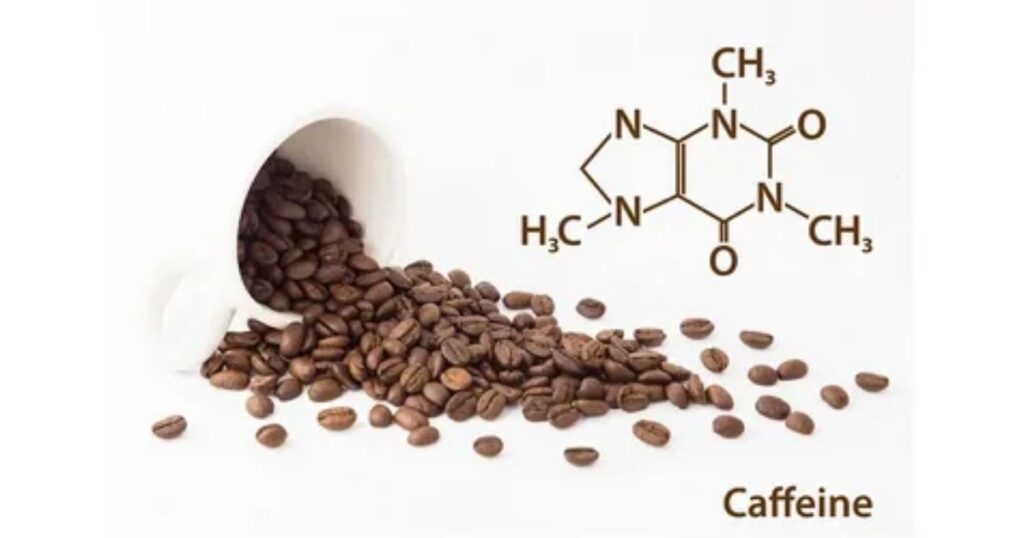
When you drink coffee, caffeine reaches the central nervous system in about 20 to 60 minutes. By blocking adenosine, it boosts dopamine, increasing alertness and energy. However, too much caffeine can cause jitters and anxiety, so moderation is important.
Adenosine receptors help regulate sleep, but caffeine blocks them, preventing tiredness. If consumed excessively, it can disrupt sleep and cause jitters, something I’ve learned from balancing work and deadlines.
The Average Time for Caffeine to Take Effect
How long for coffee to kick in? Coffee will take about 20 to 60 minutes to start working, as mentioned before, with caffeine peaking within 1 hour. The highest effects can make some feel jittery, anxious, or excessively energetic. After the peak, the level doesn’t wear off quickly. With a half-life of around 4 to 5 hours, caffeine can remain in your system for hours.
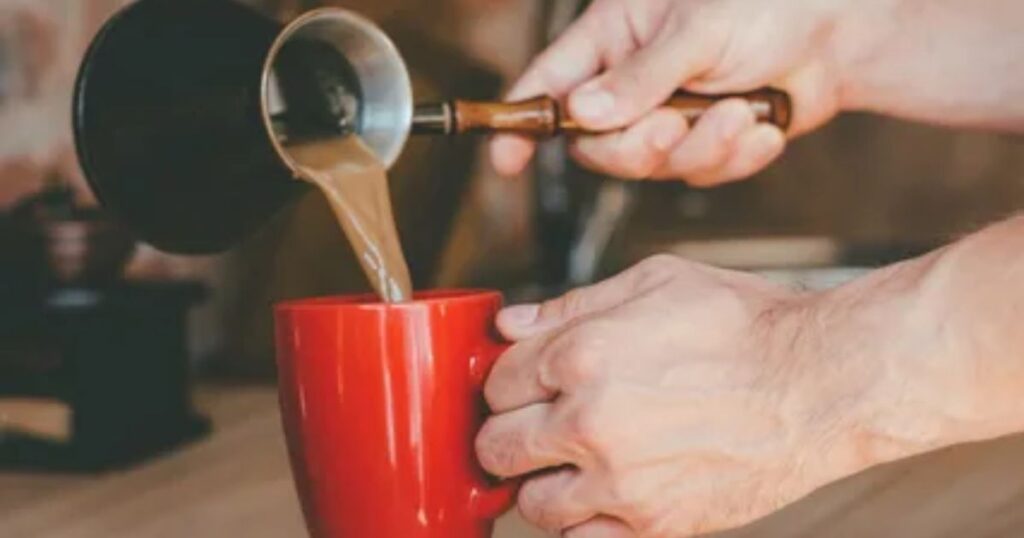
Coffee Half-Life
Caffeine doesn’t just work instantly; it has a long half-life of around 4 to 5 hours. The half-life is the time it takes for your body to reduce the amount of caffeine by half. For example, drinking coffee at 5 pm with 80mg of caffeine will leave 40mg in your system after a few hours.
This is why caffeine can keep you awake, even if you feel tired. If you’re sensitive, skipping an after-supper cup can help avoid insomnia. Adjust your intake to enjoy caffeine’s benefits without disrupting your sleep.
Factors That Change How Caffeine Works for You
Here are the factors that influence your coffee experience:
1. Coffee Size and Sipping Speed
A 4oz cup of coffee, sipped slowly, might take longer to work. An extra-large iced coffee delivers a quicker buzz.
2. Metabolism and Liver Function
Your metabolism and liver determine how caffeine is processed. A slower metabolism might delay effects by 1 to 2 hours, while a faster metabolism could kick in within 15 to 20 minutes.
3. Effective Dose
If you’re not feeling the effects, try drinking a little bit more. A big dose speeds things up but might cause side effects.
4. Time Frame
How fast you drink impacts the rate at which you feel the effects. Sipping slowly may prolong the onset, while faster consumption provides a quicker boost.
5. Personal Variations
Each person’s response varies. Experiment with timing, amounts, and speed to find what works best for you.
Caffeine and Coffee Roasts: What You Need to Know
The caffeine content in coffee can vary based on the type of beans and how the coffee is roasted. Here’s what you need to know:
How Coffee Roasts Affect Caffeine Content
The type of coffee roast affects caffeine strength, but the differences are small. Light roasts have the most caffeine by weight since they’re roasted less. Dark roasts, despite their bold flavor, have the least caffeine per scoop. However, these variations are minimal, so the choice of roast depends on personal preference.
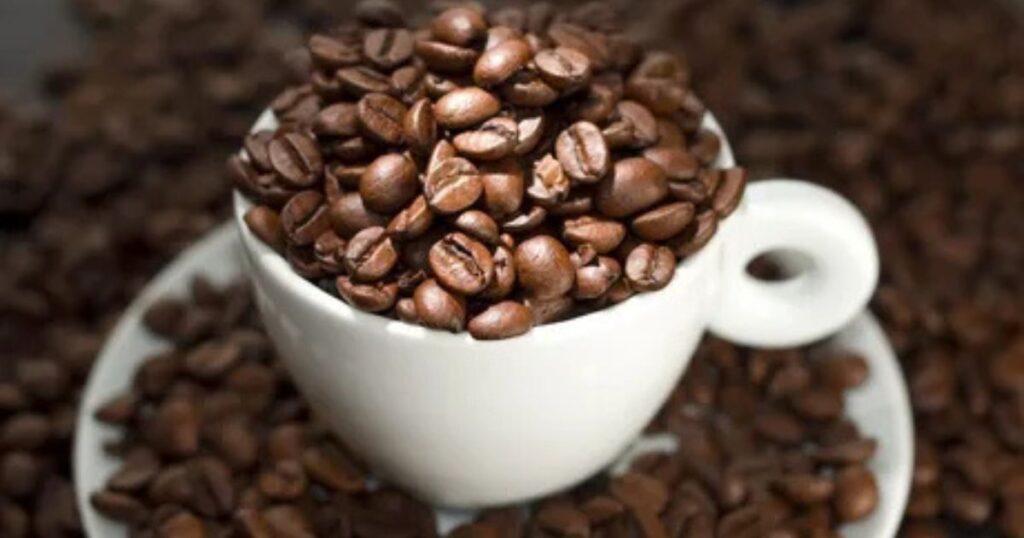
Types of Roasts and Their Caffeine Levels
Coffee roasting affects flavor, aroma, and caffeine content. There are four main types of roasts: light, medium, medium-dark, and dark, each with distinct characteristics.
Light Roast
Light roast coffee has a bright, acidic, and fruity flavor with a mild body. It appears light brown with no visible oils on the surface. Since it undergoes the shortest roasting time, it retains more caffeine per bean. Examples of light roasts include Cinnamon Roast and Half City Roast. This type of roast is best for those who enjoy a complex, floral taste and a stronger caffeine kick.
Medium Roast
Medium roast coffee offers a balanced flavor that is slightly sweet with a fuller body. It has a medium brown color and still lacks surface oils. The caffeine level in medium roast is moderate, slightly lower than light roast but still strong. Some popular examples include City Roast and Breakfast Roast. This roast is ideal for those who want a middle ground between acidity, caffeine, and flavor.
Medium-Dark Roast
Medium-dark roast has a richer, caramelized taste with chocolatey undertones and a hint of bitterness. The beans appear dark brown with some visible oil on the surface. The caffeine content is lower than in medium roast but still present in a good amount. Full City Roast and Vienna Roast fall into this category. This roast is a great choice for coffee lovers who prefer a stronger, bolder taste without excessive bitterness.
Dark Roast
Dark roast coffee is known for its bold, smoky flavor with deep chocolate or nutty notes. The beans are almost black and shiny due to the presence of natural oils. While dark roast coffee has a robust taste, it contains slightly less caffeine per bean due to the longer roasting process. Popular types include French Roast, Italian Roast, and Espresso Roast. This roast is perfect for those who enjoy a smooth yet intense coffee experience.
Caffeine Content and Measurement
Although dark roast coffee has less caffeine per bean than light roast, caffeine content can also vary depending on how coffee is measured. If coffee is measured by weight, all roasts contain almost the same amount of caffeine. However, if measured by volume, dark roast can have slightly more caffeine because it is less dense, meaning more beans fit into the same space. Espresso roast, despite being dark, is concentrated in a small shot, making it a high-caffeine choice per ounce.
Which Roast is Best for You?
For those seeking maximum caffeine, light roast is the best option, especially when brewed using strong methods like cold brew or espresso. If bold flavor is the priority, dark roast is the better choice.
Brewing Methods and Their Role
The brewing method significantly affects how much caffeine is extracted. Cold brewing, French press, or drip methods can influence the caffeine kick, as does the amount of coffee used. Choosing between large or small scoops, and balancing light, medium, or dark roasts, can help tailor your coffee experience to your energy needs.
Signs That Caffeine is Kicking In
Some visible signs express that caffeine is now affecting your body and mind. Here, few are discussed;
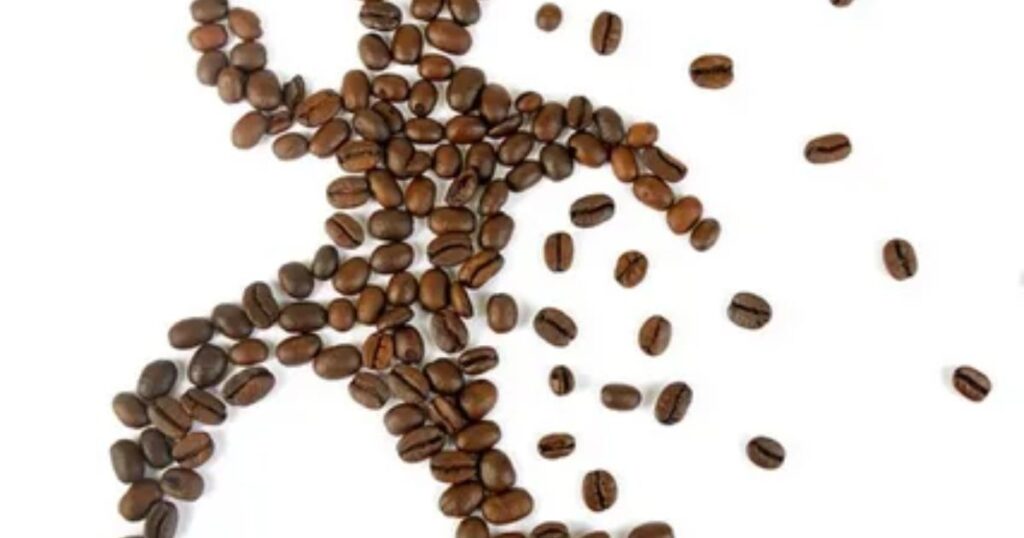
Increased Alertness and Focus
When caffeine kicks in, your mind becomes sharper and tasks feel easier. Many use coffee for this quick mental boost. It improves productivity and clears thoughts. However, too much caffeine can cause jitters or anxiety. The buzz may take longer to come, so avoid grabbing a second or third cup too soon.
Elevated Heart Rate
Caffeine increases your heart rate. This is a clear sign the stimulant is working. Energy levels rise, making you feel more awake and focused. Regular coffee drinkers may feel slower effects due to tolerance. A faster heartbeat and sharper focus signal that the caffeine buzz has begun.
Burst of Energy
When caffeine kicks in, you feel a surge of energy. Drowsiness fades and tasks seem easier. This usually happens within 15 to 45 minutes of drinking coffee. It feels like waking up from a nap. Caffeine blocks tiredness signals, making you feel awake. Sipping slowly can help these effects last longer. However, too much can lead to jitters or restlessness. Balance is important.
Tips to Maximize Caffeine’s Effectiveness
To get the most out of caffeine, timing is crucial. A quick pick-me-up can boost alertness, but drinking too much leads to jitters or anxiety. Instead of reaching for a second or third cup, wait a bit longer and let the effects kick in.
How to Time Your Coffee Right
To get the most from your coffee, timing matters. Don’t drink it immediately after waking up. Wait about an hour for your body to adjust. This way, the caffeine will work better.
For a long day, drink coffee between 9 a.m. and 11 a.m. If you need a pick-me-up later, don’t overdo it. Avoid a second cup too late to prevent jitters and poor sleep. Make sure you’re not taking too much caffeine, and give it some time between cups.
Managing Caffeine Tolerance
As you drink caffeine regularly, your body builds tolerance, making it less effective. To keep feeling energized, avoid taking too much caffeine too often. Overconsumption can lead to a need for more to feel the same buzz, but this can cause anxiety or coffee jitters. Instead, try spacing out your intake and allowing your body to reset.
This way, your caffeine will remain effective and won’t lose its impact. If you’re reaching for that second or third cup, consider waiting a bit longer. Caffeine needs time to kick in, and guzzling down more too quickly can just cause discomfort. Managing caffeine tolerance is about moderation and listening to your body.
Combining with Food or Exercise
For better results, drink caffeine after eating. It helps your body absorb it faster. I’ve noticed that having a snack before coffee can speed things up and stop any uncomfortable jitters. A light meal or protein works best. If you exercise, caffeine can boost your performance.
It improves energy and alertness, helping you focus during workouts. Drinking coffee before exercise can give you the push you need. Just be careful not to overdo it, as too much caffeine can lead to anxiety or jitters.
Avoiding Overconsumption of Caffeine
Drinking too much caffeine can lead to anxiety and jitters. It’s easy to grab a second or third cup, but don’t rush. Caffeine takes time to kick in. Drinking more too soon will leave you overstimulated.
Instead, wait a bit longer for the effects to kick in. Delaying your next cup can help avoid overconsumption. Taking breaks lets you enjoy the caffeine without going overboard. Listen to your body. If you feel anxious, you might be taking too much. Enjoy the caffeine at a steady pace.
Final Thoughts
How long does it take for caffeine to kick in? The answer is usually within an hour, but it depends. Many people rely on coffee as a quick pick-me-up. Sometimes it doesn’t quite give the expected buzz right away.
Instead of reaching for a second or third cup, wait a bit longer. The delay is normal as caffeine needs time to work. Taking too much too quickly can cause anxiety or jitters. Several variables can change the time frame for caffeine to kick in.
Drinking speed and quantity play a role. If you don’t feel the effects right away, stay patient. Overloading won’t help and might cause side effects. Make sure to balance your intake. This way, you can enjoy caffeine’s benefits without overdoing it.
FAQs
How Long Does it Take Caffeine From oCffee to hit?
Caffeine from coffee can kick in within five minutes. It may vary for different people. You’ll feel more alert and focused in that time.
How Long Does 1 Coffee Keep you Awake?
One coffee keeps you awake for about four to six hours. The effects can vary depending on your body. Generally, it provides a boost of energy for several hours.
How Long Does it Take to Extract Caffeine From Coffee?
Caffeine extraction is quick. About 90% of it happens within the first minute of brewing. After that, the process slows down significantly.
Does Coffee hit Immediately?
Caffeine usually starts working within five minutes of drinking coffee. However, its full effects may take longer to feel. Generally, you’ll start noticing increased alertness and energy shortly after consumption.
What is the 90-minute Coffee Rule?
The 90-minute coffee rule suggests waiting 90 minutes after waking up before drinking coffee. This allows adenosine levels to rise slightly. As a result, caffeine becomes more effective at blocking receptors and keeping you alert.
How Long Does 200mg of Caffeine Last?
200mg of caffeine typically lasts 4 to 6 hours. Its effects peak within the first hour. After that, the impact gradually fades over time.

